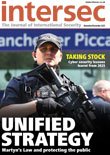The ISIS offensive
As ISIS militants continue to steamroller across Iraq, John Chisholm examines the factors behind the group’s success and asks whether their campaign is likely to produce the results they desire
The taking of Mosul by members of the Islamic State in Iraq and the Levant (ISIS) has propelled the crisis in northern Iraq into the spotlight. It has underlined the continuing instability of Iraq and called into question its viability as a state. It has also had some unintended international consequences which indicate some positive results may flow from ISIS’ successes.
ISIS militants are the heirs to al-Qaeda in Iraq. Their attraction to the younger and more radicalised Sunni population over AQI is fairly obvious: action. The ISIS leader, a rather shadowy figure called Abu Bakr al Baghdadi, is a military leader, tactician and man of action. Against this, al-Qaeda is led by Ayman al-Zawahiri, an Islamic scholar and man of alleged learning. The ability to inspire, motivate and offer a direct outlet for the frustrations of the Sunni minority in Iraq clearly lie with al Baghdadi. The two men split in 2013 when al-Zawahiri, alarmed by the success of ISIS in northern Syria, disbanded it. Al-Baghdadi simply ignored him and carried on. This, if nothing else, underlines the increasingly marginalised position al-Qaeda holds in the Islamic movement.
ISIS has tightened its grip on various parts on northern Syria and Iraq over the past 18 months, defying the central government in Baghdad, but being more successfully contained in Syria. Here, President Bashar al Assad has been assisted by Iranian advisers who have helped him hold onto a central core of towns and cities and blocked ISIS from penetrating further into Syria. It may be the case that, denied the opportunity to further expand their territory and influence in Syria, ISIS has turned East, into Iraq, and undertaken a significant and highly successful military offensive that has brought them within 40 miles of Baghdad.
The ISIS fighters are clearly highly motivated and skilled. They have regrouped following their defeat in 2007 at the hands of the US and tribal militias, and the Syrian conflict has been an important crucible for ISIS; foreign militants and former Sunni officers from Saddam’s army have provided ISIS with a competent military backbone that it previously lacked. The ability of ISIS to use small, highly motivated and mobile units against larger, better equipped but poorly-trained and demoralised forces has been proved many times before Mosul.
A major factor in their success is the frustration within the Sunni community over the actions of Iraqi President Malaki. Malaki has become more and more sectarian, relying heavily on the Shia community and arresting Sunni political leaders on charges that reek of opportunism. Even that has not been enough, as some Shia leaders have also been sidelined as Maliki has attempted to shore up an increasingly fragile political position. Recent elections gave him a wafer thin majority, and it seems unlikely that he will be able to form an effective government. His response has been to strengthen his position through favouritism and corruption, which has also extended to the military.
Major losers in this process, the Sunni minority have only had confirmed what they suspected for decades: that once the Shia took control they would be subject to political retribution and isolation, having ruled Iraq for so long and subjected the Shia to the same treatment. ISIS appears to offer a solution, and one that looks superficially attractive to the younger and more radicalised members of the Sunni community. Allegations that more British citizens are joining ISIS than are joining the British Army may be apocryphal, but the claim has the grain of truth that success in the field has attracted Sunni militants from many other countries. It must not be forgotten that there has been an active and growing pool of militant Islamist fighters who travel from conflict to conflict, increasingly experienced and motivated by Islamic ideology and the desire to fight.
Rumours abound regarding the fall of Iraq’s second city to ISIS on 9 June. Outwardly it seemed that the Iraqi army simply collapsed, offering no resistance. Instead, the troops either joined the half a million refugees fleeing the fighting, or dissolved back into the civilian population. Later footage, shot on 14 June and released by ISIS, allegedly showed many men being shot in a mass execution, from the nearby town of Tal Far which had also fallen without a fight. This has not been verified, but ISIS has demonstrated similar ruthlessness in the past and such footage is clearly part of a terror campaign to paralyse military and civilians alike. On 11 June they seized Tikrit, home town of Saddam Hussein.
But there are other stories. The Kurdish secret police, who had a presence in Mosul when the city fell, reported that officers of the Iraqi army had been instructed to leave the city the day before the attack, abandoning their men and offering no military resistance. The men awoke the next morning leaderless, with the telephones disconnected and ISIS knocking at the gates of the city. In these circumstances it is not surprising that units simply disintegrated. Again, this story is hard to verify, but the explanation offered was this was a vote of no confidence by the military on an Iraq ruled by an increasingly out of touch Maliki. It would certainly explain why there was no organised resistance.
Half a million people have left Mosul. This is a massive refugee movement, and nothing like it has been seen for decades in terms of such numbers in such a short duration. Many have fled north, to the relative security of Kurdistan, as fleeing towards Shia-held areas to the south looks scarcely more attractive than staying with ISIS. It is also worth noting that the central bank in Mosul contained over 400m US dollars – money now at the disposal of ISIS to pay fighters and buy equipment and influence. ISIS rule is ramshackle, but is based on summary justice founded on the harshest interpretation of Sharia law. For middle aged and older Sunni people, going from the secular Iraq of Saddam Hussein to the brutalities of Sharia in a decade must be a major culture shock.
The Iraqi army has been lauded as the best-trained and equipped Arab army currently in existence. The US has spent a small fortune equipping it with high tech weapons and training the troops and leaders in modern military techniques. Yet, as has been proven so often in the past – notably with the ARVN – it does not matter how much money you throw at an army if the men do not want to fight and the officers are wholly demotivated. Morale seems to be the problem. Although there clearly are some units that have been willing to stand their ground, and even conduct offensives against ISIS, the army overall looks unreliable and incapable of stemming the ISIS offensive.
Insubordination and “under training” has been rife for years. But Maliki has added to the problem by replacing Sunni generals with Shia ones with no thought for actual competence, and competent Shia generals with loyalists as fear of a coup d’etat is always in the back of the mind of a political leader lacking legitimacy. One commentator has noted that the idea that the army collapsed in Mosul is wrongheaded because “the army has been collapsing for months now”.
So Maliki has tried to play three cards. The first, primarily domestic, has been to call up masses of young Shia men to form militias. These units – poorly disciplined, lightly armed and virtually untrained – have the positive benefits of being motivated and loyal, if not to Maliki then to the Shia cause. Perhaps not particularly effective militarily (one shudders to think about them being thrown against the hardened fighters of ISIS in defensive positions) they are not going to melt away. They, and the more effective army units around Baghdad, will at least protect the city and prevent any further surprises by ISIS.
To help raise, arm and train these men, as well as work out a winning strategy against ISIS, Maliki has turned to his friends in Tehran, who have sent to Baghdad someone who has already met ISIS before and succeeded. Major General Quassem Suleimani arrived in Baghdad to shore up the defence against ISIS, having done a similar job in Damascus for President al-Assad, along with 2,000 men as an “advance force”. Suleimani clearly is the best man for the job, knowing how ISIS thinks. Being a Shia he also will have a far greater degree of influence on the Shia volunteers pouring into recruiting offices and into Baghdad, and stands a better chance of knowing their strengths and weaknesses.
A third card Maliki has tried to play is the US one. But Washington under President Obama is not the Washington of George Bush Junior. Obama pledged to get the US out of foreign wars, not get embroiled in them. Iraq is especially sensitive as the US has only recently left, and at the insistence of Maliki who did not want a US presence in the country – arguably because it would have acted as a restraint on his increasingly authoritarian and sectarian impulses. So Obama’s response has been cautious: drones, possibly, maybe airstrikes and some advisors. No to troops on the ground (although some SF may be desirable).
Of course both Tehran and Washington now have a common enemy in ISIS, and this co-operation may lead to a greater thaw in other areas such as a nuclear agreement. They both also seem equally disenchanted with Maliki. Although their long-term aims regarding Iraq diverge, in the short term Maliki clearly cannot deliver stability. For Iran, having a totally unstable Iraq on the border is not a recipe for happiness, and the new Iranian President Rouhani has given enough signals about wanting to end the destructive Cold War with the West to want to see a credible and stable neighbour in preference to an ideological bedfellow.
In other words, defeating ISIS may only be part of the equation. Finding a compromise leader – one who is more interested in conciliation than sectarian favouritism – seems another likely outcome. Maliki would potentially be able to survive politically against Washington or Tehran, but if they both agree he has to go, then it is unlikely anyone will even hear the splash.
Another winner has been Kurdistan. They have taken advantage of the crisis to secure Kirkuk, realising a long-held ambition. Indeed, while Baghdad is trying to fend off ISIS, the Kurds have moved to tighten their grip in the north and look unlikely to let go easily. ISIS, meanwhile, has steered clear of antagonising the Kurds. They, too, are Sunni, and it would be difficult for ISIS to play the religious card. More importantly, the Kurds have a very strong sense of self-identity, and a highly trained and motivated fighting force of their own: the Peshmerga. The ISIS leadership are not stupid. Taking on the Kurds would be a wholly different order of magnitude from the feeble Iraqi forces they have overwhelmed so far.
But this move by ISIS may confirm the tacit, if not entirely legal, position that Kurdistan is effectively independent from Baghdad. ISIS will probably collapse, not militarily but because it has proved itself unable to govern civilian areas with anything other than a combination of brutality and religiosity. This is not a recipe for long-term political survival. It is likely that an ISIS collapse may come just as fast as their success; indeed, this is probably the high tide of their expansion. No. The long term winners will be the Kurds; having created a stable and peaceful enclave where Western companies like to do business, it seems far-fetched to expect anyone to back a regime in Baghdad, of whatever stripe, that sought to bring them to heel.
John Chisholm is intersec’s International Affairs Correspondent









